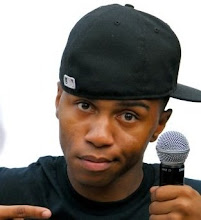
If you've read the novel "Things Fall Apart"(1959) by Chinua Achebe (this being a photo of Achebe), then the photo you see here seems, at least to me, to be a clear visualization of the stern, fierce, grimacing face of the Umuofia clan's most wealthy and respected warrior (as well as one of the most profound characters in the novel), Okonkwo. No offense to Achebe in any way, but this photo in particular gives the image of threat, discipline, and punishment. It also gives the image of honor, pride, respect, and accomplishment. All of which was sought after and greatly achieved by Okonkwo.
A main focus point I zoned in on was the sense of what makes a man in the Umuofia clan as well as the neighboring clans nearby. In the story, this topic seemed to be heavily emphasized when mentioning anything pertaining to Okonkwo. Not so much of him proving his manhood, because he had done that long ago according to the storyline (such stories of him defeating Amalinze the cat in a wrestling match come to mind), but the fear of him not displaying it. Although it be silently, Okonkwo was afraid of being, or even portraying a description of what any man claimed to be "weak".
This fear may have been instilled in him growing up around his father, Unoka, who was without titles or wealth. In fact, Unoka was known mainly for his constant and ever growing debt and outstanding laziness. Umuofia considered him a complete failure and abomination to the earth. With that in mind, Okonkwo didn't have much to look up to or anything to inherit, making him hungry for success and titles. It is even noted that Okonkwo declared to hate everything his father may have stood for, and he planned to live in the exact opposite footsteps his father walked. This desire Okonkwo had he wanted also his family to have, and hated everything they may have done against his will. I guess he may have felt as though even if a man's family shows weakness, it is a reflection of his own.
There was much more emphasized throughout the course of the novel, but Okonkwo's desire to show no weakness and be considered a man in all aspects astounded me. For those who have read this novel, you can most likely picture the great lengths he went to in order to train and discipline (which was often along the lines of threatening and beating) his family. that alone made me feel as though his approach on "manhood" was a bit blurred, but I take it that may have been acceptable at that time.
Overall, that interpretation of what was considered manhood made me take a look at myself. I thought of what work have I done towards gaining titles and success. It made me think more on how far am I willing to go to gain these things, and keep them upon achievement. Will I be capable of gaining as much as Okonkwo? If so, can I do it without the actions he took, or the conflicts he had (many of which seemed to be brought upon himself). So for the young men reading this (of coarse having first read and gained an understanding of the novel), I hope this pierces your mind with similar questions.

2 comments:
I think that idea of manhood is essential theme in the book also and I also agree that at the same time, Okonkwo's lengths to which he tried to reach that seemed unorthodox personally.
manhood and adequacy for sure. He never wanted to be like his father in any way, hence why he tried to do everything different.
Post a Comment